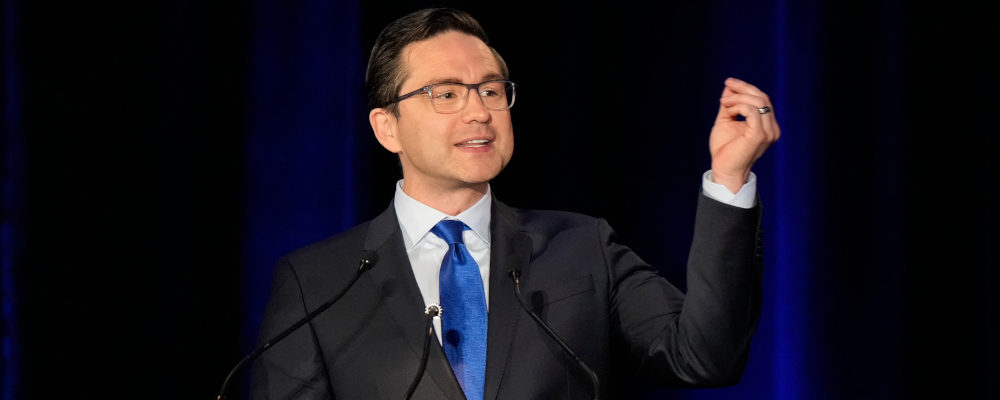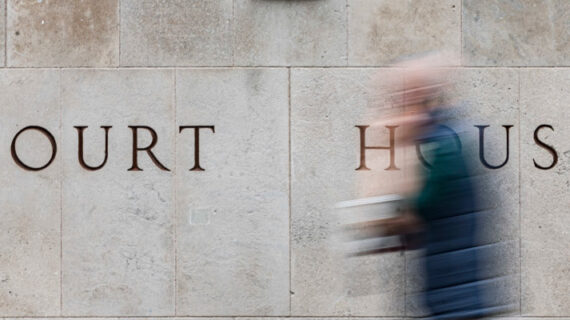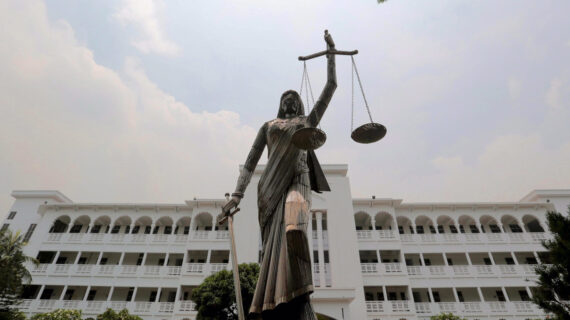In two months’ time, Pierre Poilievre will take the reins of the Conservative Party of Canada.
With the party releasing its preliminary list of approximately 675,000 eligible leadership electors late last month,1Approximately 675K eligible to vote in Conservative leadership race: party https://www.ctvnews.ca/politics/approximately-675k-eligible-to-vote-in-conservative-leadership-race-party-1.5970147?cid=sm%3Atrueanthem%3A%7B%7Bcampaignname%7D%7D%3Atwitterpost%E2%80%8B&taid=62be1e79d6534d00012c04e8&utm_campaign=trueAnthem%3A+Trending+Content&utm_medium=trueAnthem&utm_source=twitter we have now entered “foregone conclusion” territory. The Poilievre campaign has signed up over 55 percent of all members who have joined the Conservative Party since the race began in February. Poilievre can also bank on the votes of a sizeable chunk of the 115,000 or so pre-existing party members (at the time of writing, Poilievre had received the endorsement of just over half of his co-partisans in the House of Commons, signalling a strong base of support at the electoral district level). In recent weeks, Poilievre has garnered key endorsements from long-tenured party stalwarts like Mulroney government alumnus Elmer MacKay (father of 2020 runner-up Peter MacKay); a clear indication that the Conservative Party establishment is lining up, however begrudgingly, behind the man who’s certain to become party’s next leader.
As a matter of simple arithmetic, the leadership race is effectively over. The only question that remains is how many ballots it will take Poilievre to clinch the victory.
Poilievre finds himself in this enviable position because he has stuck doggedly to a clear and uncompromisingly populist message, hammering away at the well-connected “gatekeepers” who leverage their political influence to impede everyday Canadians from building wealth and getting ahead in life. He’s doubled down on this narrative at every turn, undeterred by blowback in the opinion pages and personal attacks from some of Canada’s most august public figures (including former Bank of Canada governor David Dodge, who has called Poilievre’s politics “incredibly stupid”). Poilievre has also been unwavering in his support for the freedom convoys that have rolled through his hometown of Ottawa throughout the year, recently joining Canadian Forces veteran James Topp on his “March to Freedom” through the streets of the nation’s capital. The freedom movement and Poilievre—who announced back in February that he was running for prime minister to make Canadians the “freest people on earth”—are a branding match made in heaven.
This message has been catnip to the Conservative Party’s base, who’ve united behind Poilievre with a uniformity not seen since Stephen Harper’s departure from politics. An online survey of 5,228 self-identified Conservative Party members conducted by the right-wing True North Centre (TNC) last month found that over three-quarters of respondents favoured Poilievre to be the party’s next leader278.5% of Conservative members rank Poilievre as first choice for leader: True North survey https://tnc.news/2022/06/27/poll-leadership-cpc/—rival Jean Charest and now-disqualified rival Patrick Brown mustered a collective 0.9 percent of the vote (disclosure: I was briefly a research fellow for TNC predecessor the True North Initiative). Communications executive Corey Hogan recently tweeted, “Pierre Poilievre might understand key messages and brand better than any politician I have ever seen.” Indeed, Poilievre’s leadership campaign has been a clinic in effective political marketing so far.
However, there are a number of reasons to suspect that Poilievre’s gatekeeper-bashing, freedom-trumpeting message won’t play quite as well with the general electorate. Political rhetoric that pins society’s problems on a small, ill-defined elite—i.e., Poilievre’s gatekeepers—tends to lead true believers down a conspiracist rabbit hole that, more often than not, ends up at the doorstep of one well-heeled Jewish family or another. In a post-truth national climate where some 13 percent of Canadians believe that billionaire Bill Gates is using microchips to track our movements and a further 20 percent of us believe that the World Economic Forum is secretly running global affairs,3Millions believe in conspiracy theories in Canada https://abacusdata.ca/conspiracy-theories-canada/ this rhetorical tack could easily blow up in Poilievre’s face; it would just take one conspiracy-spouting Poilievre backer taking things too far.
Moreover, while Poilievre has sought to educate Canadians about our very own gospel of freedom (showing a special affinity to Liberal prime minister Sir Wilfrid Laurier) many of us will still associate the word “freedom” with the erstwhile Land of the Free to our south. This is not a connotation that Poilievre will want to embrace. Indeed, it brings to mind Janis Joplin’s timeless refrain that “freedom’s just another word for ‘nothing left to lose’”.
Canadian voters are a skittish bunch who, historically, have chafed at anything that strikes us as too radical—or even worse, too American. Canada’s recent electoral history is rife with examples. Back in 2004, scandal-plagued prime minister Paul Martin found a new lease on life by tying Conservative upstart Stephen Harper to the unpopular U.S.-led invasion of Iraq. Seven years later, Harper, by then prime minister himself, Yankee-bashed his way to his sole majority government by convincing voters that his principal challenger, Harvard professor Michael Ignatieff, was “just visiting” his birth country of Canada after 34 years abroad. Poilieve, who has needlessly incorporated a few Americanized touches to his campaign branding (for instance, the whole “running for prime minister” thing), will undoubtedly be painted with a red-white-and-blue brush by a Liberal war room that takes no prisoners.
The good news for Poilievre is that, thanks to the confidence-and-supply agreement between the Liberals and NDP, he will have at least three years to prepare for the next federal election. The even better news is that the Trudeau government, which will enter its eighth year in the fall, already looks to be on its last legs.
Never known for being an especially tight ship, HMCS Trudeau now appears to be totally adrift and rudderless. In fact, the past few months have raised serious questions about the federal government’s ability to deliver even the most basic frontline services to Canadians. Travellers have endured days-long delays and lost checked luggage at the country’s major airports; people are camping overnight outside of Service Canada offices in hopes of getting their passports renewed; the backlog in Canada’s immigration system has grown by over 250,000 since the beginning of May and now stands at 2.4 million. These lapses have only been magnified by a seemingly endless string of unforced errors from members of Trudeau’s frontbench. Near the end of June, the prime minister announced the creation of a new parliamentary task force on service delivery, an uninspired and all-too-predictable gesture that was universally panned by political commentators.
To his credit, Poilievre appears to be recalibrating his message to match the shifting political winds. On June 27th, he tweeted “Trudeau gov wants to do many things that are NOT their job… but not what IS their job: passports, airports, low inflation. We need back-to-basics govt that does a few things well, not a lot of things poorly [emphasis added].”
“[Doing] a few things well, not a lot of things poorly” is the message that will make Pierre Poilievre the next prime minister of Canada; and, if it sounds familiar, that’s because it was also the message at the heart of the breakthrough 2006 campaign of Poilievre’s mentor Stephen Harper.
By the time of the writ’s dropping in late 2005, the Paul Martin-led Liberal government was knocked off course by the spiralling sponsorship scandal, plagued by infighting, and intent on imposing an expensive and byzantine national child care system on the provinces (sound familiar?). Recognizing the desire of Canadians for a functional, drama-free federal government, Harper and his team emphasized a small set of priorities with broad buy-in among Canadians.
These priorities were clearly articulated to voters in the form of “five promises”: a federal accountability act; a two percent cut in the GST; reduced hospital wait times; monthly cash for child care; and tougher sentences for violent offenders. In addition to anchoring the Conservative brand, the “five promises” set the parameters of the policy debate, frustrating Liberal efforts to paint Harper as a right-wing extremist. The specificity and near-universal appeal of these promises left the Liberal campaign scrambling to respond, leading to a series of blunders. Case in point, Liberal spokesman Scott Reid’s now (in)famous claim that parents would blow their child care cheques on “beer and popcorn”.
With the Conservative nomination now all but wrapped up, Pierre Poilievre should shift his focus to developing a short list of core policy priorities and a roadmap for how a Poilievre government will deliver these reforms to Canadians. Poilievre, who was named Canada’s most knowledgeable parliamentarian by Maclean’s in 2018, is more than capable of crafting a winning policy agenda and will impress Canadians with his ability to grasp the minutiae of multiple files.
Saddled with a government that can no longer deliver basic services, Canadians will settle for competence. For all the invective that Poilievre has drawn in recent months, he still enjoys a longstanding reputation as a thoughtful and capable student of politics who’s pretty dang good at his job as a member of parliament. He must now return to his policy wonk roots if he wants to lead the Conservative Party back to power.




